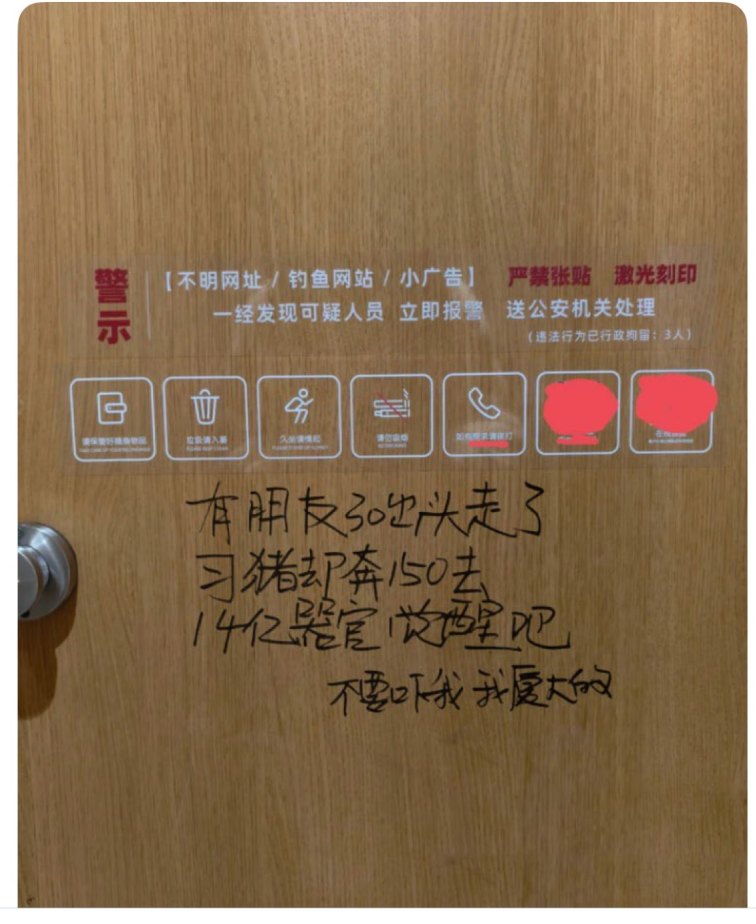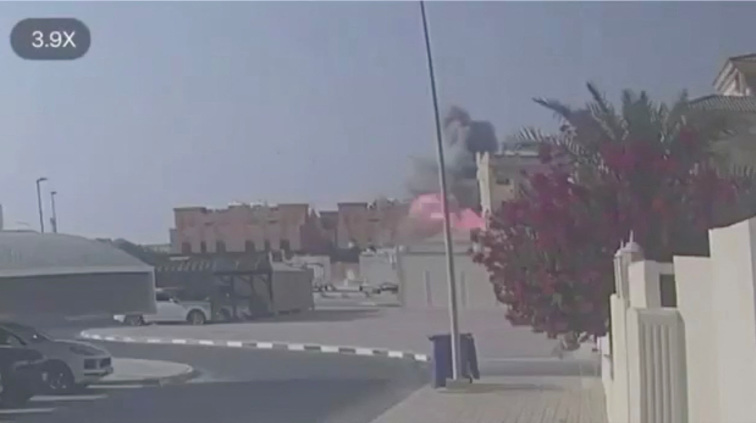March 10, 2025, Beijing Great Hall of the People—A security guard stands at the entrance before the closing ceremony of the Chinese People's Political Consultative Conference. (WANG ZHAO/AFP via Getty Images)
[People News] On September 3, the day of the military parade, discussions between Chinese Communist Party leader Xi Jinping and Russian President Vladimir Putin on topics such as 'organ transplantation' ignited a wave of international commentary. On September 5, Chinese Central Television (CCTV) demanded that Reuters remove a four-minute edited video that had been circulated. Following this, Reuters complied by removing the video and issued a 'delete' order to over 1,000 of its clients. Observers suggest that this likely reflects a direct order from Xi Jinping to CCTV, indicating that he still wields control over the propaganda department.
'Is there really a problem with Xi's health? Has he been stripped of power? Is he on the brink of stepping down?' These questions have once again captured public interest.
Some analysts believe that in the lead-up to and following the military parade, Xi Jinping has been actively participating in a series of political events, including speaking at the BRICS leaders' online summit. On the 9th, he also met with Portuguese Prime Minister António Costa. Concurrently, party media have been vocally promoting him. The People's Daily even published an article titled 'The General Secretary's Six Days,' detailing Xi Jinping's activities from August 30 to September 4. The message from the party media is clear: Xi Jinping's health is robust enough to support his frequent political engagements, and he remains in a position of significant power. This counters recent analyses by overseas observers regarding 'Xi's health issues' and 'being stripped of power,' which are quite evident. In summary, Xi's counterattack appears to have been successful.
Some commentators believe that this is merely a smokescreen from the Chinese Communist Party (CCP), a facade of unity designed to extend the illusion of Xi Jinping's power and sustain the CCP regime. For instance, following the Xi-Putin 'organ transplant' dialogue on September 3, the request to delete it was only made two days later. Such a delayed reaction may suggest that someone within the propaganda department is intentionally undermining Xi Jinping, or it could indicate that the entire dictatorial apparatus is malfunctioning, operating with very low efficiency, as officials adopt a laid-back, careless, and negligent attitude towards Xi Jinping. To clarify further, the demand to delete something that is already widely known globally only serves to expose the CCP's malevolence, sparking public interest and hinting at a sophisticated form of mockery.
Additionally, it has been reported online that after the military parade, Xi Jinping's younger brother, Xi Yuanping, organised a gathering for their red family. However, the photos reveal that all significant figures from the princeling faction were absent, indicating a collective boycott. This includes the descendants and families of notable leaders such as Liu Shaoqi, Deng Xiaoping, Hu Yaobang, Zhao Ziyang, Hu Jintao, Ye Jianying, and Li Xiannian, none of whom attended. This suggests that the second generation of red elites is aware of the precariousness of Xi's political future.
Given the opaque nature of the CCP's dictatorial and brutal regime, the complex power struggles at the top indeed create a sense of confusion. However, one thing is clear: there is considerable dissatisfaction with Xi Jinping within both the party and the military. While Xi has been ineffective in governance, he is quite skilled in power struggles and has continuously pursued a new round of power arrangements for the 20th Central Committee's Fourth Plenary Session. For example, the party media alternates between referring to 'collective leadership' and emphasising 'centralised and unified leadership.' Xi Jinping tests loyalty within the party through these signals, using misleading information to confuse his opponents, and then employs rectification and anti-corruption campaigns to target dissenters.
Reports indicate that the military and party elders initially intended to use the Beidaihe meeting in early August to eradicate the 'Miao Hua influence' within the armed forces and further 'cleanse the court.' This situation has left members of Xi's faction feeling increasingly insecure. Consequently, the Xi faction sought to instigate a significant diplomatic incident in the South China Sea to disrupt the Beidaihe meeting's agenda. However, the elders and military leaders issued strict orders prohibiting the navy from provoking any international conflict. In this context, the navy's Guilin was instructed to collide with its own coast guard vessel. If this indeed reflects the truth behind the mid-August incident involving the collision of Chinese Communist Party vessels, it highlights the extent of Xi's reckless counteroffensive.
So, how stable is Xi's power? We conclude this article with remarks from Zhang Youxia. Prior to the military parade, state media reported that during an academic seminar commemorating the so-called 80th anniversary of the Anti-Japanese War, Vice Chairman of the Military Commission Zhang Youxia emphasised the importance of genuinely learning, understanding, believing in, and applying Xi Jinping's new era ideology... and the need to comprehensively enhance military training and readiness. Zhang Youxia's comments effectively capture the current state of the CCP, much like the party's rhetoric about 'confidence in the path, confidence in the theory, confidence in the system...' The CCP often names what it lacks as what it needs. Throughout history and across cultures, where can we find instances of false learning, false understanding, false belief, and false application? What do these contradictions and elements of dark humour reveal?
So, has Xi Jinping lost power during the Fourth Plenary Session or the 21st Congress? Professor Zhang Tianliang from Feitian University mentioned on social media that, despite the turbulent undercurrents, reports indicate that Xi is set to attend the APEC meeting in South Korea at the end of October and will also meet with Trump. Given that the Fourth Plenary Session is scheduled for October, this suggests that Xi's power may at least extend until November. As for the 21st Congress, it will be important to observe developments, as this will reveal whether Xi's counteroffensive has been truly successful.
(First published by People News)
△











News magazine bootstrap themes!
I like this themes, fast loading and look profesional
Thank you Carlos!
You're welcome!
Please support me with give positive rating!
Yes Sure!